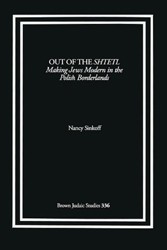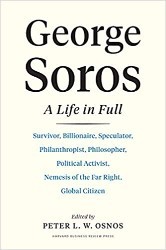Lucy Dawidowicz stood out among the Jewish New York intellectuals of the last century. While Daniel Bell, Nathan Glazer, and Irving Howe addressed social and political issues of the day, Dawidowicz declared that a “sense of Jewish history and destiny is what every Jew who cares about the survival of his people feels in his bones.”
She cared passionately about the future of Jewish life, particularly in the wake of the destruction of Jewish civilization in Europe. She fearlessly challenged the arguments of Hannah Arendt and several historians, rejecting contentions that the Holocaust was anything other than what she called The War Against the Jews. Nancy Sinkoff’s compelling biography presents a textured, engaging portrait of a historian and essayist fiercely devoted to her people.
Fate made Dawidowicz a witness to the last days of Yiddish culture in Eastern Europe. She spent a year in her early twenties as a researcher and translator at the YIVO Institute for Jewish Research in Vilna — a year which ended just as the Nazis invaded Poland. Her life’s work was shaped by that immersion in the religion, culture, and thought of Eastern European Jewish civilization.
The experience inspired her first major book, The Golden Tradition, a collection of source materials exemplifying the ideas, politics, intellectual currents, and everyday life in that vanished world. Dawidowicz challenged the view that Yiddish culture could survive as a secular movement outside the cultural envelope of Eastern Europe, but she was determined to preserve its legacy. She spent a year in Europe after the war, helping salvage thousands of Jewish books which otherwise would likely have been lost.
In the decades when she worked for the American Jewish Committee, AJC believed that human-rights legislation was the best way to protect the interests of Jews. Dawidowicz disagreed, urging advocacy for the specific interests of the Jewish community as well. When AJC favored a Holocaust memorial that would recall “outrages against humanity,” she argued that it should chronicle “the decimation of Jews.” She later wrote to the liberal Rabbi Eugene Borowitz, “Only the parochial Jews worried about what Hitlerism meant for Jewish survival. The universalists regarded Hitler as the last stage of imperialist capitalism.”
From Left to Right frames Dawidowicz’s intellectual path as a journey to neoconservatism. While that’s accurate, it risks diminishing her forthright independence as a thinker. She certainly came to share many of the views of the neoconservative intellectuals of her time. Unlike many of them, however, her values were grounded in the Jewish culture of prewar Vilna, and the devastation of that culture by the Nazi onslaught. This extensively documented, sensitive account of Lucy Dawidowicz’s life and work is a pleasure to read. It’s also a welcome opportunity to revisit the thought of a bold intellectual whose values still resonate today.




